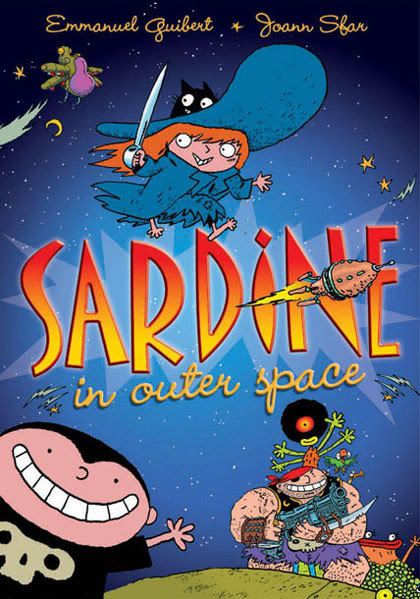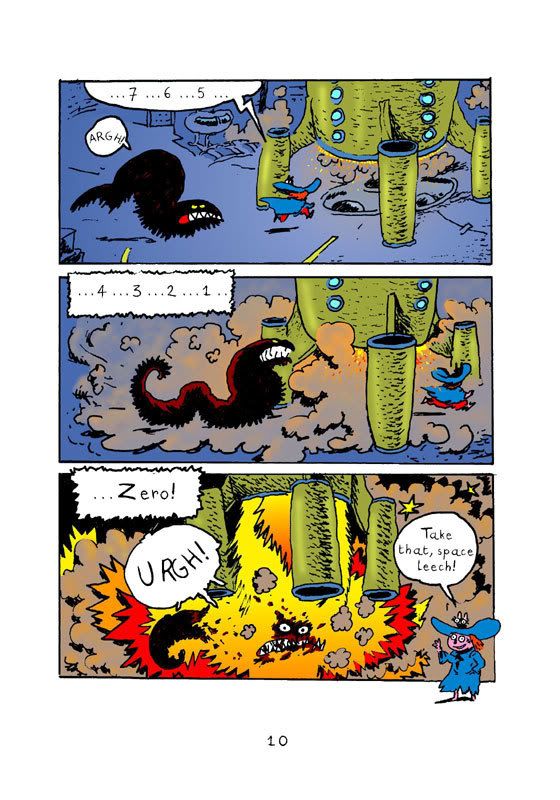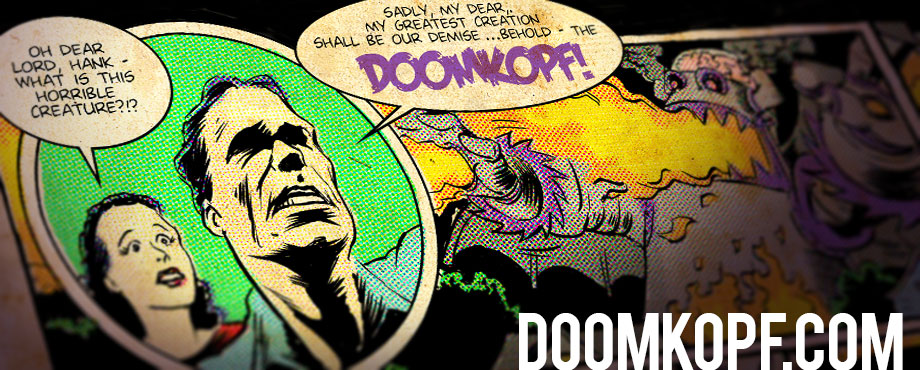International Affairs: Sardine in Outer Space
By Emmanuel Guibert (W) and Joann Sfar (A)
Published by First Second, volumes 1-3, $12.95
 We make a belated return to the wide world of international comics (redundant, eh?) with a look at Sardine in Outer Space. The third graphic novel in the series will be released this year. Sardine is a space pirate, an Orphan Annie-esque little redheaded misfit who pinballs through the universe with her space pirate uncle, Captain Yellow Shoulder. Each book has ten or so tales, most of them battles between the space pirates and their nemesis, Supermuscleman.
We make a belated return to the wide world of international comics (redundant, eh?) with a look at Sardine in Outer Space. The third graphic novel in the series will be released this year. Sardine is a space pirate, an Orphan Annie-esque little redheaded misfit who pinballs through the universe with her space pirate uncle, Captain Yellow Shoulder. Each book has ten or so tales, most of them battles between the space pirates and their nemesis, Supermuscleman.
While a lot of the previous foreign works I’ve reviewed have been pretty heady — including The Professor’s Daughter, which was written by Sfar and illustrated by Guibert — Sardine (originally published in France) is sort of like the Animaniacs in space. It’s nonsensical but with an intelligent wit. Supermuscleman (who looks like a French supervillain) and his sidekick Doc Krok are out to put all children under their thumbs. The space pirates are an anarchistic bunch, freeing children and reveling in the lack of supervision.
 Despite all its lunacy, and there are heaping spoonfuls, Sardine manages a few sly bits of commentary on parenting and various societal strictures. Meanwhile, Sfar’s art (which is almost childish on first glance but packs an impressive amount of detail) lampoons the sci fi genre. There’s a bar scene in the first book that’s a poke-in-the-ribs replica of the classic bar scene from Star Wars. The space ships (big bugs and bats, etc.) and alien gadgets (the Milky Way becomes literally a highway of milk) and weapons (glue guns, Cha Cha bees that infect with dance music) all further flesh out the universe of endlessly ridiculous possibilities.
Despite all its lunacy, and there are heaping spoonfuls, Sardine manages a few sly bits of commentary on parenting and various societal strictures. Meanwhile, Sfar’s art (which is almost childish on first glance but packs an impressive amount of detail) lampoons the sci fi genre. There’s a bar scene in the first book that’s a poke-in-the-ribs replica of the classic bar scene from Star Wars. The space ships (big bugs and bats, etc.) and alien gadgets (the Milky Way becomes literally a highway of milk) and weapons (glue guns, Cha Cha bees that infect with dance music) all further flesh out the universe of endlessly ridiculous possibilities.
With ten-page stories, each book reads quickly but holds up on repeated readings, largely because the creators layer in so many little details that fill out their fantasy world. To Guibert and Sfar, space is a bizarro reflection of earth. Each planet the space pirates visit serves as a silly metaphor for some aspect of humanity. But the book doesn’t dwell on these analogies, knowing that to do so would needlessly weigh down on the frivolous fun.
Sardine is definitely a children’s book primarily. It’s certainly readable to adults, but I’d imagine it would be a thing of joy for the younger set. As evidenced by the child-freedom-centric plot, the books are sort of a celebration of the imaginative pleasure of youth. As I was reading, I couldn’t help but drift into visions of when I have kids and being able to read the book with them.
